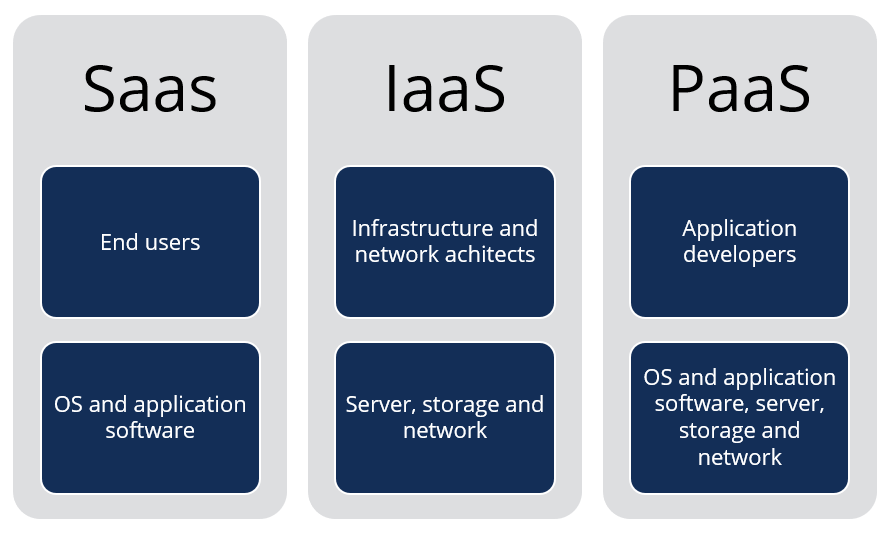Streamline IT Administration With Cloud Solutions
Cloud solutions have arised as a practical remedy for businesses looking to boost performance, minimize expenses, and boost overall IT efficiency. How specifically do these cloud services change standard IT monitoring methods? Let's discover the transformative impact of leveraging cloud solutions on IT operations and the essential considerations for successful application.
Advantages of Cloud Solutions

In addition, cloud solutions allow organizations to enhance their operational efficiency by streamlining procedures and lowering the moment and resources required for managing IT infrastructure. With cloud services, businesses can automate regular jobs, such as software application updates and data back-ups, liberating IT groups to concentrate on more critical efforts that drive company value.

Boosted Scalability and Flexibility
Cloud solutions offer organizations with unrivaled scalability and adaptability in managing their IT sources successfully. Scalability is an important attribute of cloud services that enables firms to quickly readjust their IT sources based on need. With cloud solutions, companies can promptly scale up or down their computing resources, storage space capacity, and network data transfer to fulfill transforming needs without the demand for significant upfront investments in equipment. This adaptability enables organizations to adjust to fluctuating workloads, seasonal demands, or unanticipated development without experiencing downtime or efficiency issues.
Furthermore, cloud solutions give the flexibility to pick from a selection of service designs, such as Facilities as a Service (IaaS), Platform as a Solution (PaaS), or Software as a Solution (SaaS), based on the certain needs of the organization. The improved scalability and flexibility supplied by cloud services encourage services to optimize their IT procedures and stay dexterous in today's dynamic market setting.

Cost-Effectiveness and Cost Savings
With the ability to effectively allocate resources based on need, services utilizing cloud services can harness substantial cost-effectiveness and recognize significant savings in their IT procedures. Cloud services provide a pay-as-you-go version, allowing firms to only spend for the resources they use, eliminating the demand for large in advance financial investments in software and hardware. This scalability ensures that services can conveniently adapt to changing needs without overspending on unnecessary sources. In addition, cloud services reduce upkeep expenses by changing the responsibility of hardware maintenance and software program updates to the company. This minimizes the demand for specialized IT staff to take care of framework, further reducing operational costs. The cloud gives economic situations of range, with providers spreading out prices throughout several customers, resulting in lower private costs for services like storage and computing power. Overall, the cost-effectiveness and savings attained via cloud solutions allow discover this services to reallocate resources towards innovation and development campaigns.
Improved Safety and Compliance
Enhancing the total safety and security stance and making sure governing compliance are extremely important considerations for businesses leveraging cloud services in their IT management methods. Cloud company use advanced safety measures, such as information encryption, multi-factor authentication, and automated back-ups, which can reinforce a firm's security structure. These suppliers also abide by stringent regulative criteria, such as GDPR, HIPAA, and PCI DSS, helping services fulfill conformity requirements a lot more effectively.
Executing cloud solutions can boost safety and security by supplying systematized control over accessibility management, monitoring, and data defense. This central approach simplifies safety monitoring and ensures constant application of safety and security policies across the company. Additionally, cloud solutions typically supply real-time protection updates and patches, reducing the risk of susceptabilities and prospective breaches.
Finest Practices for Cloud Execution
Applying cloud solutions efficiently calls for an organized approach that incorporates complete planning and persistent implementation. To make sure a smooth transition to the cloud, companies should start by conducting a thorough analysis of try these out their existing IT infrastructure and identifying which workloads appropriate for migration. It is important to establish clear purposes and specify vital efficiency indicators (KPIs) to measure the success of the cloud application.
One of the best techniques for cloud implementation is to carefully pick a cloud company that aligns with the company's demands in regards to safety, compliance, scalability, and cost-effectiveness. In addition, creating a thorough migration strategy that describes the actions involved, timelines, and duties is essential for an effective implementation.
Consistently optimizing and checking cloud resources to make sure reliable performance and expense monitoring is another vital facet of cloud implementation finest practices. Continuous examination of the cloud setting and staying informed regarding updates and brand-new attributes offered by the cloud company can better enhance the organization's cloud technique. By adhering to these ideal practices, organizations can improve straight from the source their IT administration and take full advantage of the advantages of cloud solutions.
Verdict
In verdict, leveraging cloud solutions for IT administration provides various benefits, including enhanced scalability, cost-effectiveness, boosted safety, and compliance. Overall, cloud solutions boost operational efficiency and dexterity in managing IT infrastructure.
In addition, cloud solutions offer the flexibility to pick from a range of service versions, such as Facilities as a Service (IaaS), Platform as a Service (PaaS), or Software Program as a Solution (SaaS), based on the details demands of the service. Additionally, cloud solutions reduce upkeep expenses by changing the obligation of hardware maintenance and software updates to the solution company.Enhancing the overall protection position and ensuring regulative compliance are extremely important considerations for organizations leveraging cloud services in their IT monitoring methods.On a regular basis enhancing and checking cloud resources to make sure reliable performance and price management is one more essential aspect of cloud execution best methods. Continual assessment of the cloud atmosphere and staying educated concerning updates and new attributes supplied by the cloud company can additionally boost the company's cloud technique.